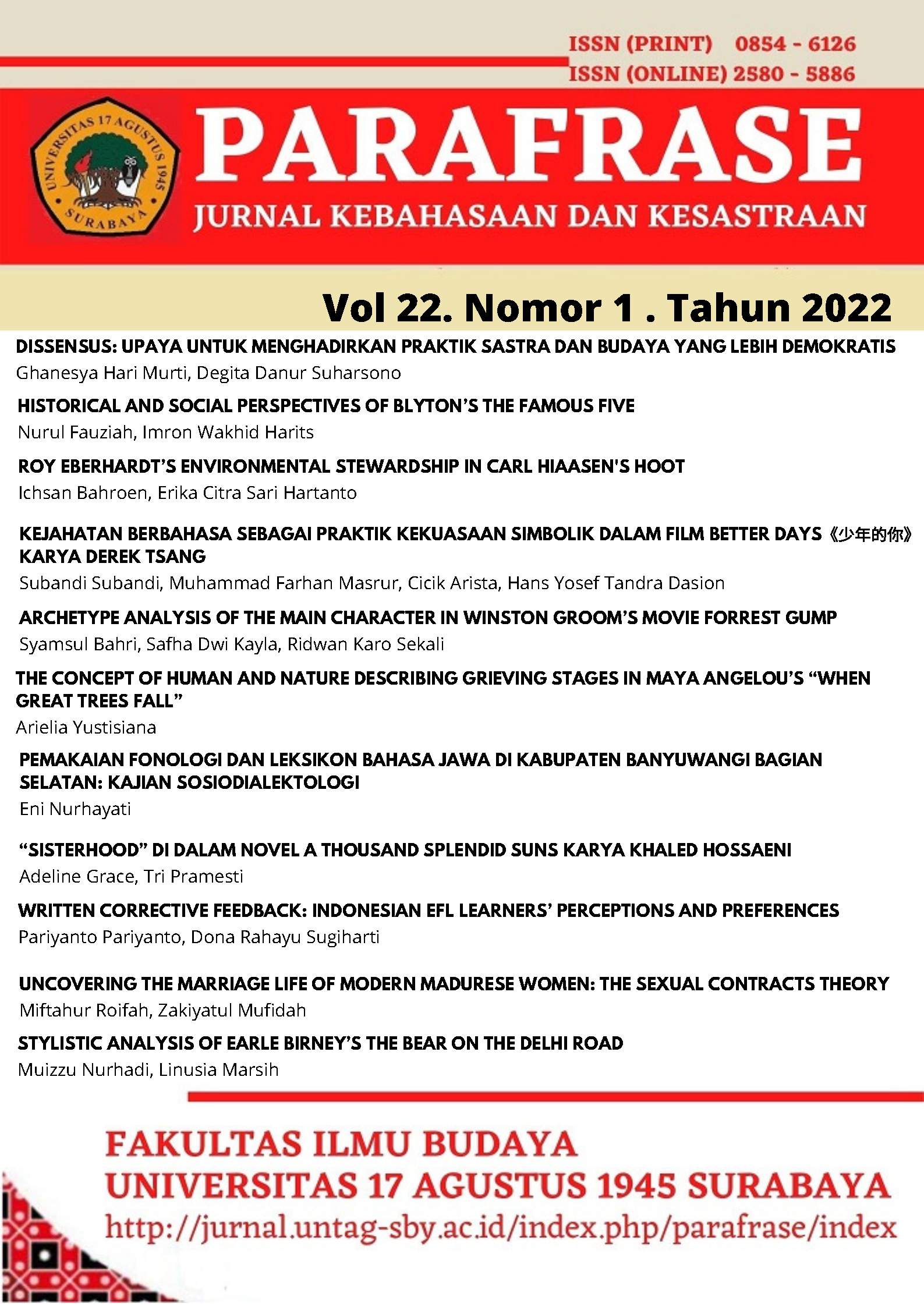UNCOVERING THE MARRIAGE LIFE OF MODERN MADURESE WOMEN: THE SEXUAL CONTRACTS THEORY
DOI:
https://doi.org/10.30996/parafrase.v22i1.6619Abstract
The life of Madurese women is interesting to study as they live in a strongly patriarchal society as well as cultural traditions. In terms of marriage, Madurese women are confronted with unfavorable traditional practices such as early marriage and arranged marriage. Low educational level and financial dependence are two major factors that prevent them from escaping these practices and leave them in unhappy marriages. Many of them experience domination and subordination in all aspects of their life. However, such conditions are commonly experienced by former Madurese women whose life was restricted to beliefs and traditions that undermined women. Nowadays, modern era has significantly shaped the way people perceive things and behave. Subsequently, modern Madurese women are rejecting the existing marriage traditions by marrying the men of their choosing. They also have better educational backgrounds that contribute to the different perspectives of life and are financially independent. Employing a phenomenological framework, the purpose of this study is to investigate the marriage life of Modern Madurese women by looking at the husband-wife relationship based on the sexual contracts theory. Unstructured interviews were used to generate the data for the analysis. The results of the study demonstrate that there is a husband-wife relationship shifting in the marriage life of modern Madurese women. The husband-wife relationship is more to the partnership rather than dominant-subordinated.
Downloads
Downloads
Published
How to Cite
Issue
Section
License
Authors publishing in the Journal will be asked to sign a Copyright Assignment Form. In signing the form, it is assumed that authors have obtained permission to use any copyrighted or previously published material. All authors must read and agree to the conditions outlined in the form, and must sign the form or agree that the corresponding author can sign on their behalf. Articles cannot be published until a signed form has been received.It is a condition of publication that authors assign copyright or license the publication rights in their articles, including abstracts, to email jurnalparafrase@untag-sby.ac.id. . This enables us to ensure full copyright protection and to disseminate the article, and of course the Journal to the widest possible readership in print and electronic formats as appropriate.



















